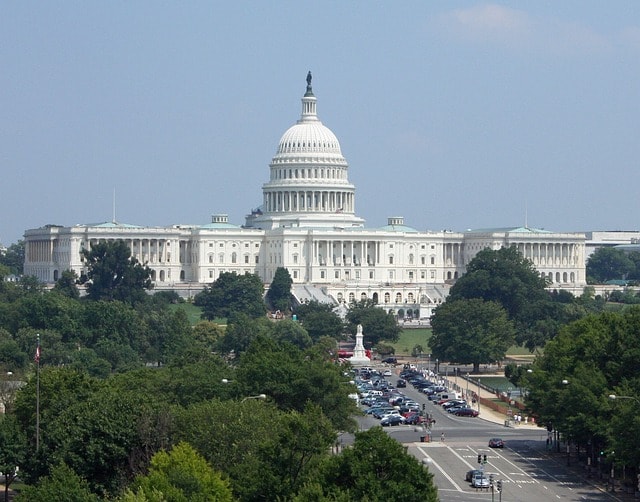FEC Registration and Political Committees: Your Guide to Campaign Finance 101

Introduction: Welcome to the Political Money Circus!
Ok, everyone, step up to the most incredible show in democracy – the wild world of political committees and campaign finance! Don’t worry; we won’t make you jump through hoops (that’s the candidates’ job). Instead, we will unravel the mystery of how money moves in politics. So, grab your popcorn, and let’s dive into this three-ring circus of cash, committees, and democracy!
1. What’s in a Name? Types of Political Committees

Just like there are different flavors of ice cream, there are various flavors of political committees. Let’s break them down:
- Political Action Committees (PACs): These are the vanilla of the bunch. They can support multiple candidates. PACs raise and spend money to elect and defeat candidates, and they must register with the FEC and adhere to contribution limits.
- Candidate’s Authorized Committees: The personal scoop for individual candidates. An independent expenditure committee does not coordinate with a candidate, a candidate’s authorized committee, or an agent of the candidate.
- Campaign Committees designate a candidate’s principal campaign committee and disclose information about the candidate, the race they are running in, and other affiliated committees.
- Party Committees: The giant sundaes represent all political parties.
- Leadership PACs: The sprinkles on top, often formed by politicians to support others.
Remember, each type has its rules – it’s not a one-size-fits-all ice cream parlor!
2. Show Me the Money: Contribution Limits

Uncle Sam says, “I want YOU… to follow contribution limits!” Here’s the scoop:
- Individuals can donate up to $2,900 per election to a candidate committee.
- PACs can give up to $5,000 per election to a candidate committee, including federal candidates.
- Party committees have higher limits because, well, they’re the life of the party! PACs can contribute more to a party committee as defined by federal election law.
Remember, these limits are per election. Primary and general elections count separately – it’s like getting a two-for-one deal on democracy!
3. The Registration Rodeo: How Committees Saddle Up

Yee-haw! It’s time for authorized committees to register with the Federal Election Commission (FEC). Here’s how they join the rodeo:
- File a Statement of Organization (Form 1) within ten days of formation as a political committee.
- Appoint a treasurer (the responsible adult in the room).
- Open a separate bank account for political funds.
It’s easier than breaking in a wild Bronco, but probably not as exciting.
4. Follow the Money: Campaign Finance Disclosure

Transparency is the name of the game. Committees must file regular reports detailing the following:
- Contributions received
- Expenditures made
- Cash on hand (hopefully more than what’s in your couch cushions)
These reports are public, so you can play detective and follow the money trail. Sherlock Holmes, eat your heart out! Each report must be filed for a particular election, ensuring financial activities are disclosed for every campaign.
5. The Super PAC Saga: Independent Expenditures
Enter the superheroes (or villains, depending on your view) of campaign finance – Super PACs! These committees can:
- Raise unlimited funds from individuals, corporations, unions, and any labor organization.
- Make independent expenditures to support or oppose candidates, candidate’s authorized committees, party committees, constituted committees, or independent expenditure committees.
- Not coordinate directly with candidates or parties (wink, wink).
It’s like having an enthusiastic friend who throws parties in your honor, but you can’t tell them how to decorate.
6. Separate Segregated Funds: The Corporate Connection
Corporations and labor organizations can’t directly contribute to candidates, but they’re not left out in the cold. They can establish Separate Segregated Funds (SSFs) to:
- Solicit voluntary contributions from a restricted class.
- Make contributions to candidates, parties, and national party committees.
It’s like having a lemonade stand but for political donations!
7. The Ballot Proposition Ballet: State and Local Committees
Some committees pirouette around state and local issues. These groups:
- Focus on ballot measures or propositions.
- It may have different rules depending on the state.
- Can sometimes raise and spend unlimited funds.
It’s a delicate dance between federal and state regulations – think “Swan Lake” meets “Schoolhouse Rock.”
8. The Calendar Year Calypso: Timing is Everything
In the world of campaign finance, timing is crucial. Committees must keep track of:
- Reporting deadlines (miss one, and the FEC might send you to detention).
- Election dates (because campaigning after election day is just sad).
- Contribution limits that reset each calendar year.
It’s like a political version of “The Time Warp” – let’s do the time warp again!
9. The National Party Narrative: Big Players, Big Rules
National party committees are the big kahunas of the political world. They can:
- Raise and spend more money than other committees, similar to a political action committee (PAC) organized to raise and spend money to elect and defeat candidates.
- Provide support to state and local parties.
- Coordinate with candidates (within limits).
Think of them as the political equivalent of your rich uncle who always picks up the tab at family dinners.
10. The Digital Dilemma: Online Politicking
Welcome to the 21st century, where campaigns are fought on screens as much as on the streets. Committees must navigate:
- Online advertising rules.
- Social media disclaimers.
- Cybersecurity concerns (because Russian hackers are so last election).
It’s like trying to play chess while riding a hoverboard – tricky but potentially viral-worthy!
Related Terms: Political party, presidential election, preceding presidential election, national party committee, primary election, political party committee, only committees, state federal government website, United States federal government
11. The Compliance Conundrum: Keeping It Legal
Staying on the right side of campaign finance law is like walking a tightrope while juggling flaming torches. Committees must:
- Keep meticulous records.
- File accurate and timely reports.
- Understand and follow a labyrinth of rules and regulations.
One misstep and it’s not just the torches that’ll burn – your political aspirations might go up in smoke, too!
Conclusion: The Grand Finale of Our Finance Fiesta
And there you have it, folks – the thrilling, chilling, and occasionally bill-filling world of political committees and campaign finance! Remember, in this circus, the clowns are writing checks, the acrobats are balancing books, and the ringmaster is Uncle Sam himself.
Whether you’re a political junkie, a concerned citizen, or just someone who enjoys a good money trail, understanding campaign finance is critical to being an informed participant in our democracy. So the next time you see a political ad or get a fundraising email, you’ll know there’s a whole world of committees, contributions, and compliance behind it.
Now, go forth and flex those newfound campaign finance muscles. Just remember – don’t try this at home unless you’re ready for a visit from the FEC!
FAQ: Your Burning Questions, Answered!
Q: Can I start my own PAC? A: Sure, if you’ve got a cause, some cash, and a high tolerance for paperwork!
Q: Are all political contributions tax-deductible? A: Nice try, but no. Political contributions are generally not tax-deductible.
Q: What happens if a committee breaks the rules? A: They might face fines, penalties, or in serious cases, criminal charges. It’s not just a slap on the wrist – it could be a slap with a hefty legal bill!
Q: Can foreign nationals contribute to U.S. political campaigns? A: Nope! That’s a big no-no. U.S. elections are for U.S. citizens and permanent residents only.
Q: How can I look up a committee’s financial reports? A: Head to the FEC website (fec.gov). It’s like Facebook stalking but for political nerds!
Remember, in the world of campaign finance, knowledge is power – and now you’ve got the power, champ!













